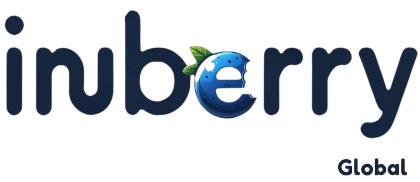
Predictive Market Analysis: An AI-Powered Case Study
Introduction: Seeing the Future in a Noisy Market
In a world where markets shift overnight and consumer behavior evolves faster than ever, one thing is clear: gut feeling and spreadsheets alone aren’t enough anymore. Businesses today need something smarter—something that not only explains what just happened but predicts what’s coming next. That’s where predictive market analysis comes in.
Powered by artificial intelligence, predictive analytics is helping companies stay one step ahead by transforming mountains of data into clear, actionable insights. From anticipating demand spikes to fine-tuning pricing in real time, AI gives businesses the edge they need to compete in fast-moving markets. Imagine being able to reduce stockouts, prevent overproduction, and align pricing with actual demand—before it even happens. That’s not just efficiency; that’s a competitive superpower.
This case study walks through how one global consumer electronics brand tackled volatile demand and pricing pressures using AI. The results? Faster decisions, smarter pricing, and a real impact on the bottom line.
Client Profile
- Industry: Consumer Electronics Manufacturing
- Annual Revenue: $250 million
- Markets: North America, Europe, APAC
- Key Challenge: Navigating unpredictable demand, intense pricing pressure, and extended product lifecycles.
Challenges
In today’s unpredictable market landscape, even the best-run companies face serious roadblocks. Here were the top three issues for our client:
🔄 Unpredictable Demand
Seasonal swings and promotional events caused large forecast deviations—up to 20% off the mark. The result? Either shelves overflowed or went empty, hurting revenue and customer trust.
💸 Manual Pricing Pitfalls
Relying on outdated, manual pricing methods in a highly dynamic market left money on the table. Without real-time data, the company couldn’t adjust quickly enough, leading to shrinking margins and lost opportunities. (Source: Vendavo)
🐢 Slow Forecast Turnaround
Their traditional forecast cycle took up to 48 hours to produce. In that time, the market had already changed. These lags meant slower reactions and missed chances.
Clearly, a more intelligent, responsive system was needed.
Solution Architecture
The team deployed an end-to-end AI solution tailored to predictive market analysis. Here’s how it was structured:
Implementation Steps
1. Data Aggregation
Combined data from diverse sources—historical sales, competitor pricing, web traffic, and economic indicators—into a single, unified data lake.
2. Feature Engineering
Created advanced predictive inputs like seasonal indicators, promotional impacts, and trend signals to train smarter models.
3. Model Training
Used powerful ensemble methods (e.g., gradient boosting, XGBoost) to train models for demand forecasting and price sensitivity analysis.
4. Dynamic Pricing Optimization
Built a real-time pricing engine that adjusted prices automatically to meet revenue and margin goals based on live market behavior.
5. Deployment & Monitoring
Rolled out models via containerized RESTful APIs and built real-time monitoring dashboards to keep tabs on performance and accuracy.
Results After 3 Months
| Metric | Before AI | After AI |
|---|---|---|
| Forecast Error Rate | 20% | 12% |
| Forecast Accuracy | 80% | 92% |
| Forecast Generation Time | 48 hours | < 1 hour |
| Pricing Margin Improvement | — | +3.5 pp |
With AI, the company:
- Reduced forecast error by 40%
- Increased accuracy by 12 percentage points
- Slashed turnaround time from two days to under an hour
- Improved margins through smarter, real-time pricing
Wider Business Impact
The ripple effects of this transformation extended well beyond demand forecasting:
- Smarter Inventory Planning: Prevented overstocking and understocking by up to 18%
- Improved Customer Retention: Personalized experiences led to a 20% bump in retention
- Fraud Detection & Risk Management: AI flagged anomalies, slashing fraud losses by 40%
- Predictive Maintenance: For logistics and equipment-heavy areas, downtime and costs dropped by 25%
Conclusion
This case study is a clear demonstration of how AI-powered predictive market analysis can dramatically shift the performance trajectory of a business. For industries dealing with complexity, long lifecycles, and volatile markets—like consumer electronics—AI isn’t just a tech upgrade. It’s a strategic imperative.
By turning raw data into forward-looking intelligence, companies can move from reacting to market changes to anticipating them—making better decisions faster, capturing more value, and staying ahead of the curve.
References
- AI-Driven Operations Forecasting in Data-Light Environments, McKinsey & Company (2021).
[1] - Improving Retail Forecast Accuracy with Machine Learning, AWS Blog (2019).
[2]
